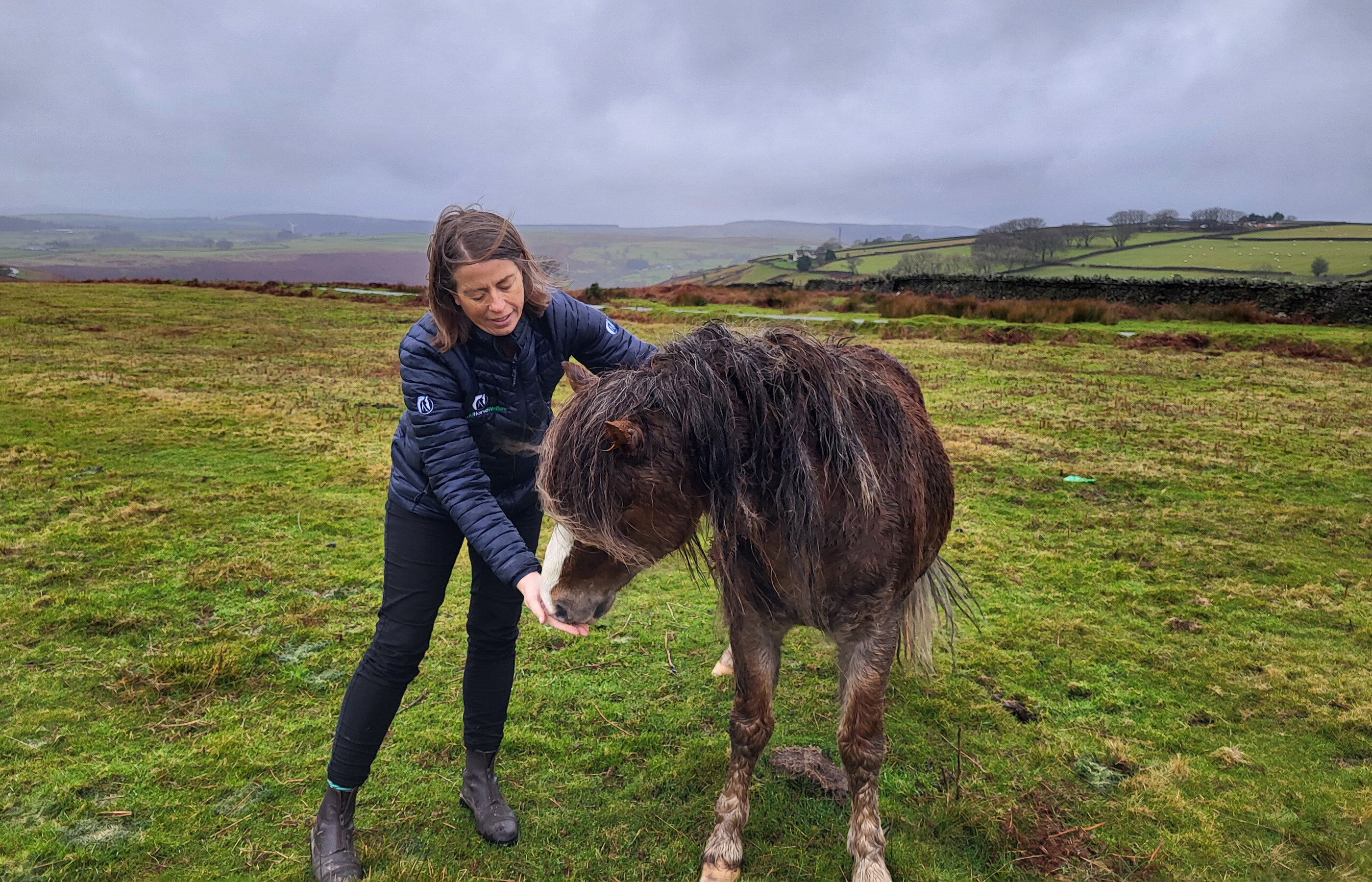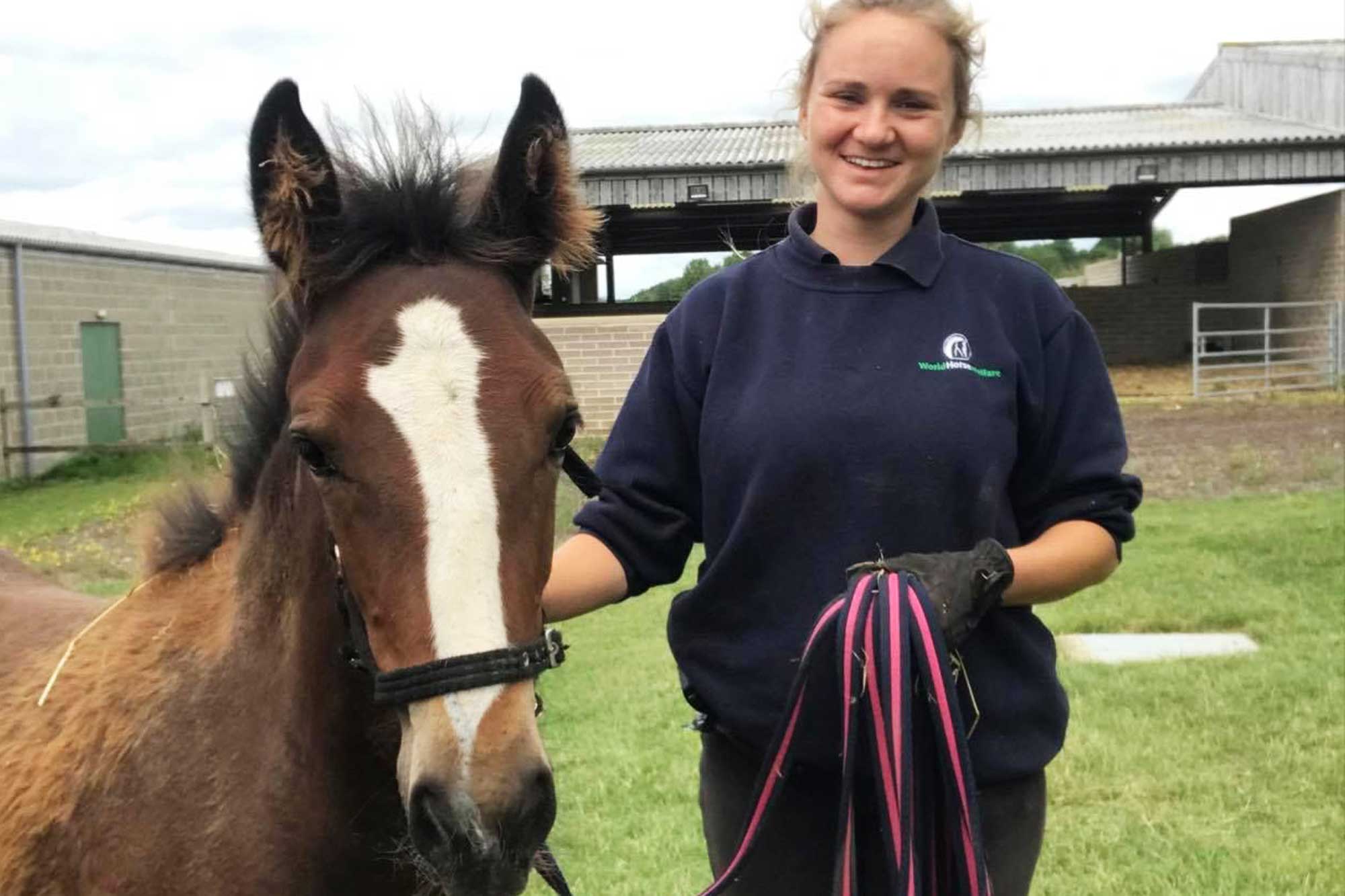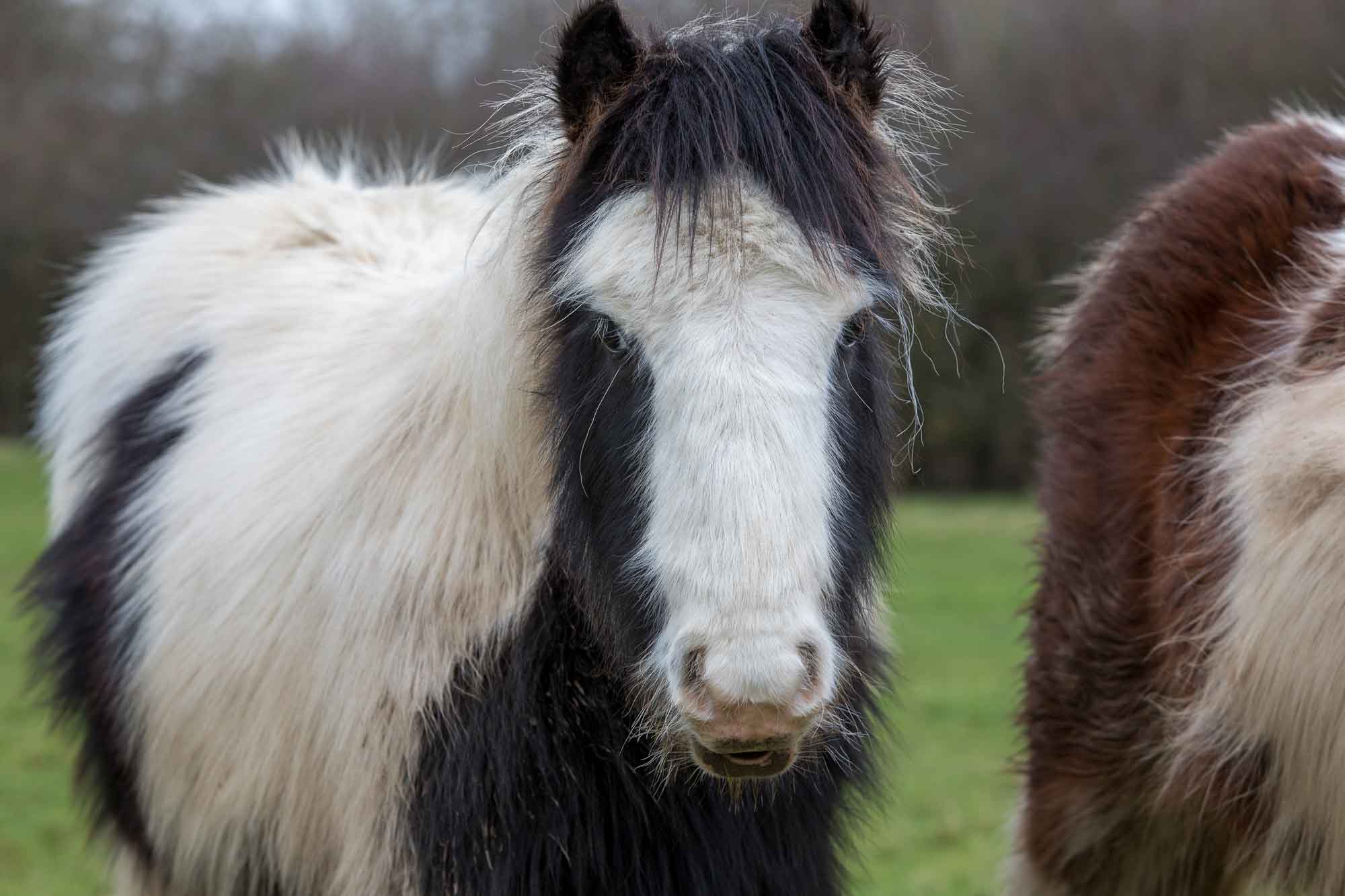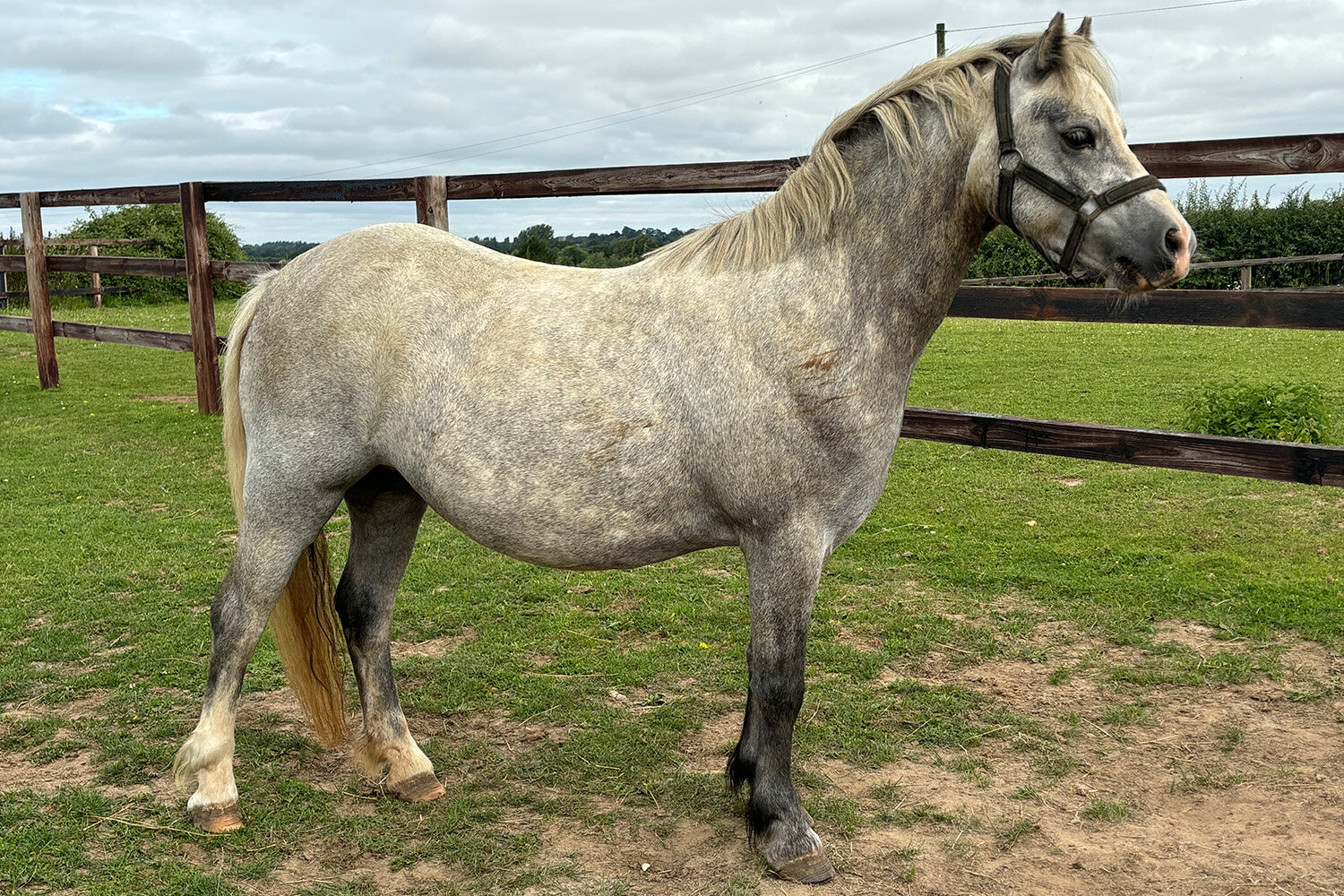A tough summer for horses – and a tougher winter ahead
At the heart of our work is a simple truth – to help horses, we must support their owners.
Posted on 07/10/2025

As we begin to head into autumn and winter approaches, our welfare reporting line is increasingly in demand. We know that times are tough, as costs spiral and pressures increase, and we want owners to know that we are here for them – not to judge, but to help.
We catch up with our Chief Field Officer, Claire Gordon, to find out more about our Help for Horse Owners support service which can offer guidance and support when it is needed most.
This year has brought an unusually dry spring and summer, leading to poor grass growth in many areas. As a result, horses haven’t been able to build up their usual body condition ahead of winter. Many are grazing on bare or overgrazed paddocks with little nutritional value.
Sadly, this has led to an increase in welfare concerns being reported to our Field Officers and we see no sign of this dropping off. We’re seeing more underweight horses and ponies than is typical for autumn — not just the elderly ones we might expect to be vulnerable.
During the pandemic, we feared that financial pressures would make it harder for people to care for their horses. Government support schemes helped many through that time, but it seems we are now seeing the delayed effects of that crisis.
Like everyone, horse owners are feeling the strain of rising costs. To cut back, we have seen owners skipping essential preventative care — including worm egg counts, deworming, dental checks, vaccinations, and regular farrier visits. In some cases, owners are even avoiding veterinary call-outs for sick or injured horses, hoping problems will resolve on their own.
The results are stark.
We’re being called out to more overwhelmed owners in need of help, and our Field Officers are encountering more horses whose welfare has been seriously compromised due to cost-saving measures.
Take Zorro, a young horse reported to us earlier this year. He was losing weight and his owners weren’t visiting regularly. The paddock offered little to no grazing and the forage provided was of such poor quality it offered virtually no nutritional benefit. The owners had other equines and were in denial about Zorro’s deteriorating condition.
Several horses were overdue farrier visits and had developed abscesses. Others were starting to lose weight, likely needing dental care and improved forage. The owners had stopped testing for parasites. With an outstanding balance at their veterinary practice and no ability to pay for further visits, the situation had spiralled.
Thanks to support from Westgate Labs, we were able to confirm that a high worm burden was part of the problem. We stepped in to get a vet out to treat the infestation and carry out dental work, allowing the owners to use their limited funds on better forage and foot care.
Sadly, help for Zorro arrived too late. Despite the vet’s best efforts – he continued to deteriorate and later collapsed. He was in such a weakened condition that he was humanely euthanised on veterinary advice. The owners have since rehomed their remaining horses, recognising that they could no longer provide adequate care.
Zorro’s story is a stark reminder of the risks of cutting back on preventive equine care.
We’re now bracing for a difficult winter, with increased pressure on our charity and resources. If you can help us reach horses like Zorro before their situation becomes critical, it would make a huge difference — not just to the horses, but also to the struggling owners who care for them.
At the heart of our work is a simple truth: to help horses, we must support their owners.
That’s why we run our Help for Horse Owners support service — designed to reach owners early, and offer help before horses suffer irreversible harm. We encourage anyone feeling overwhelmed, or worried about a horse’s condition, to reach out to us.
Our colleagues at Westgate Labs have noted that poor grazing conditions this summer have forced horses to graze closer to the ground and nearer to dung piles — significantly increasing their parasite risk. This is something we’re starting to see when we’re called out to help horses across the country.
One particularly upsetting case involved a young filly abandoned in a sheep field in Kent. Someone had cut the fencing so they could move her into the field, leaving her there alone. She was severely emaciated, suffering from serious diarrhoea as a result of a small redworm infestation, and barely able to stand. With help from the RSPCA, she was transported to an equine veterinary hospital for emergency treatment. Tragically, despite the team’s best efforts, she too had to be euthanised.

These situations are heartbreaking — especially because they are preventable. A simple, test-based parasite control plan could have saved these horses.
We understand how tough things are right now for owners. That’s why we’re here — not to judge, but to help. Please, if you’re struggling, or know someone who is, reach out early. And if you can support our work, your gift could mean the difference between life and death for a horse this winter.
Are you or someone you know in a difficult situation which is affecting a horse’s care? We’re here to help and may be able to offer some guidance and support. Find out more about our Help for Horse Owners support service.
Topics
Related Blog Posts

Buena’s story – how our foals are cared for from birth to rehoming
Senior Groom Steph introduces lovely filly Buena and explains how the team care for foals from birth right through to finding them a loving home for youngster handling.

Behind the scenes: the first few months as a World Horse Field Officer
Find out what really goes on behind the scenes as a World Horse Welfare Field Officer.
Recommended News Articles

Much-loved Adoption Horse Magpie put to sleep
Penny Farm's Adoption Horse Magpie will be greatly missed by all at World Horse Welfare.

A century in the making: Government announcement
Today's announcement of the ban on live animal exports marks significant milestone.

Horses rescued from being cruelly smuggled abroad are ready for rehoming
Five 'Dover 26' mares are now looking for homes where they can thrive.
Enjoy reading stories like this?
Join over 65,000 other horse lovers and sign up for our email newsletter

Join over 65,000 other horse lovers and sign up for our email newsletter
Sign me up now